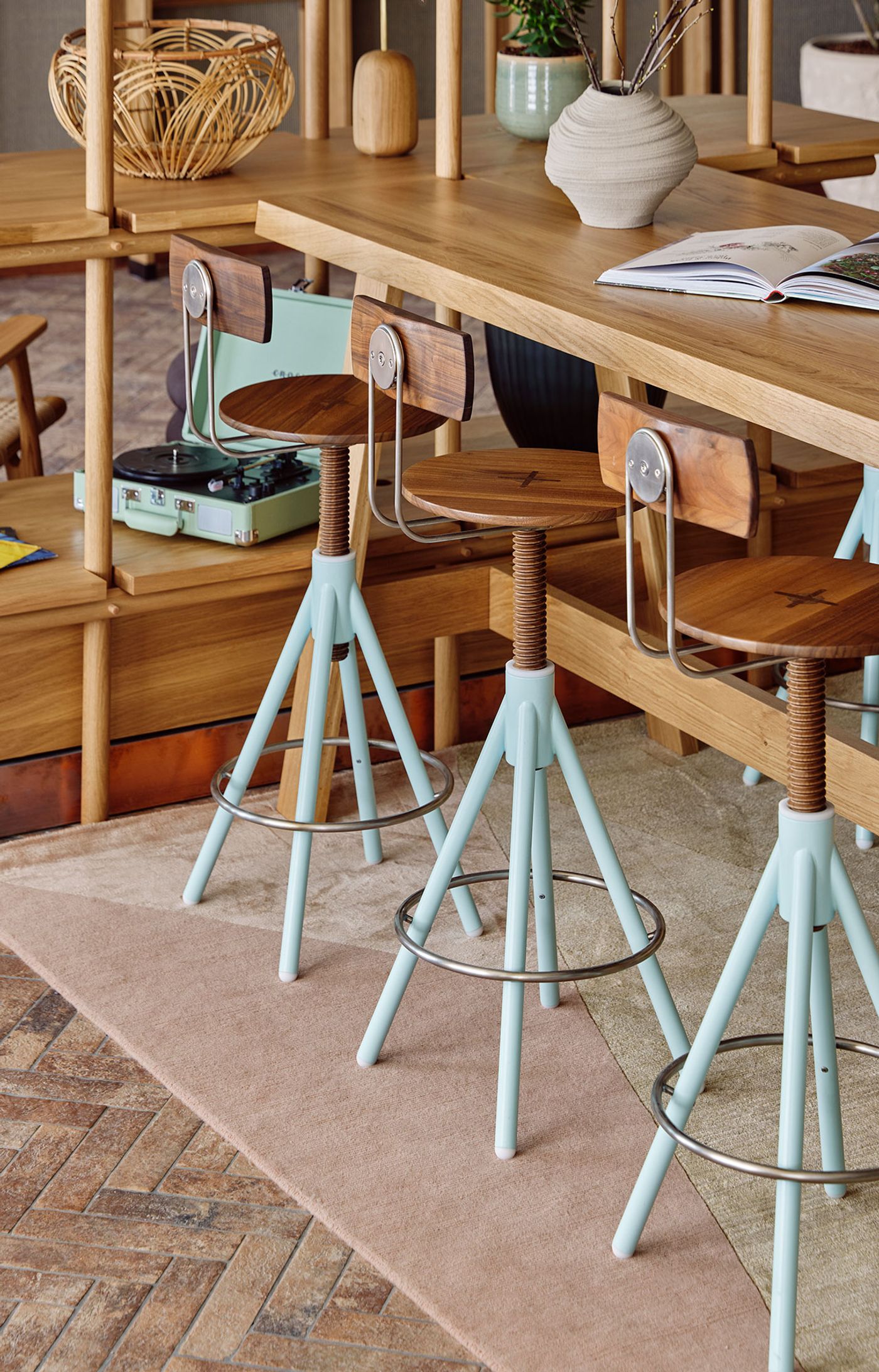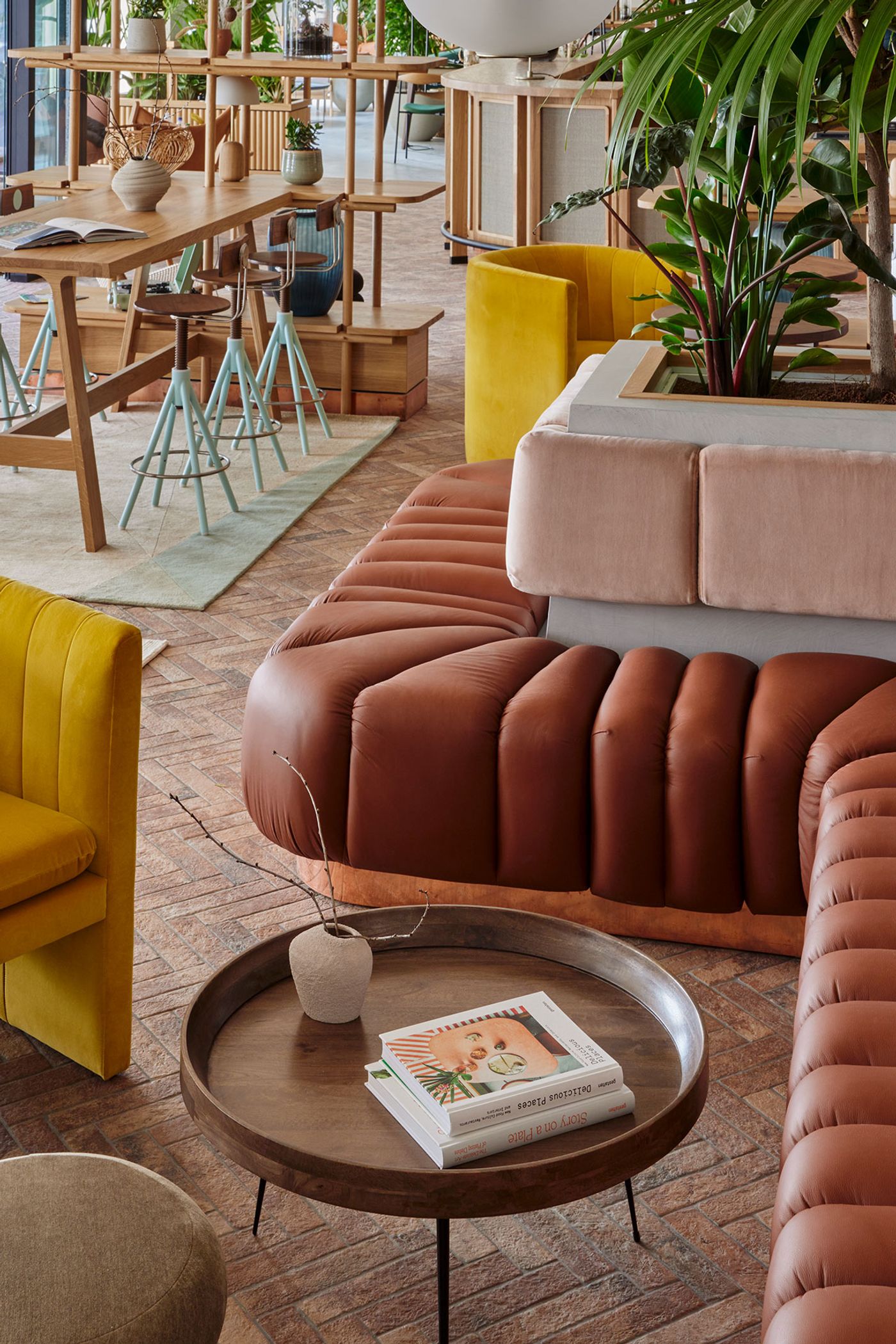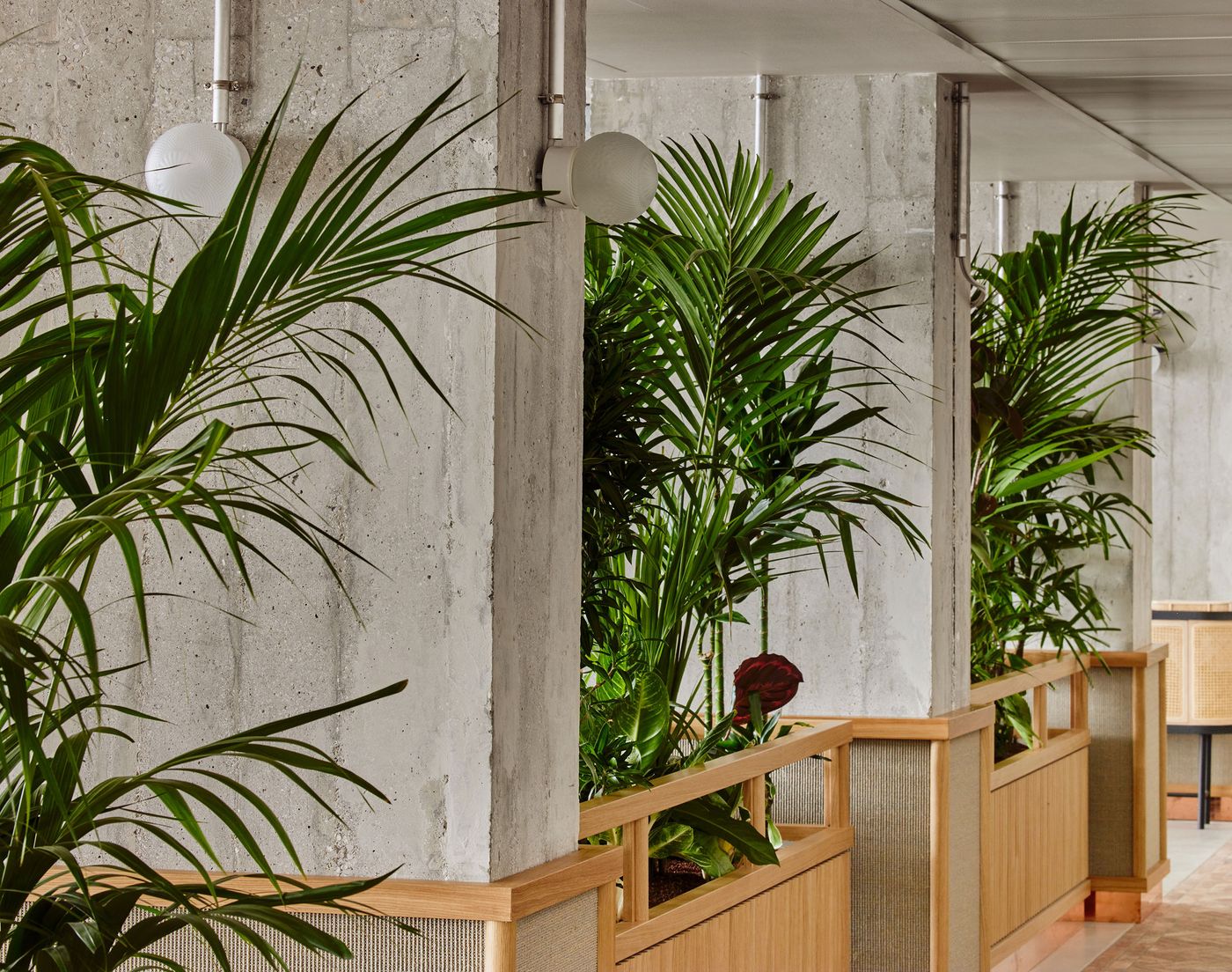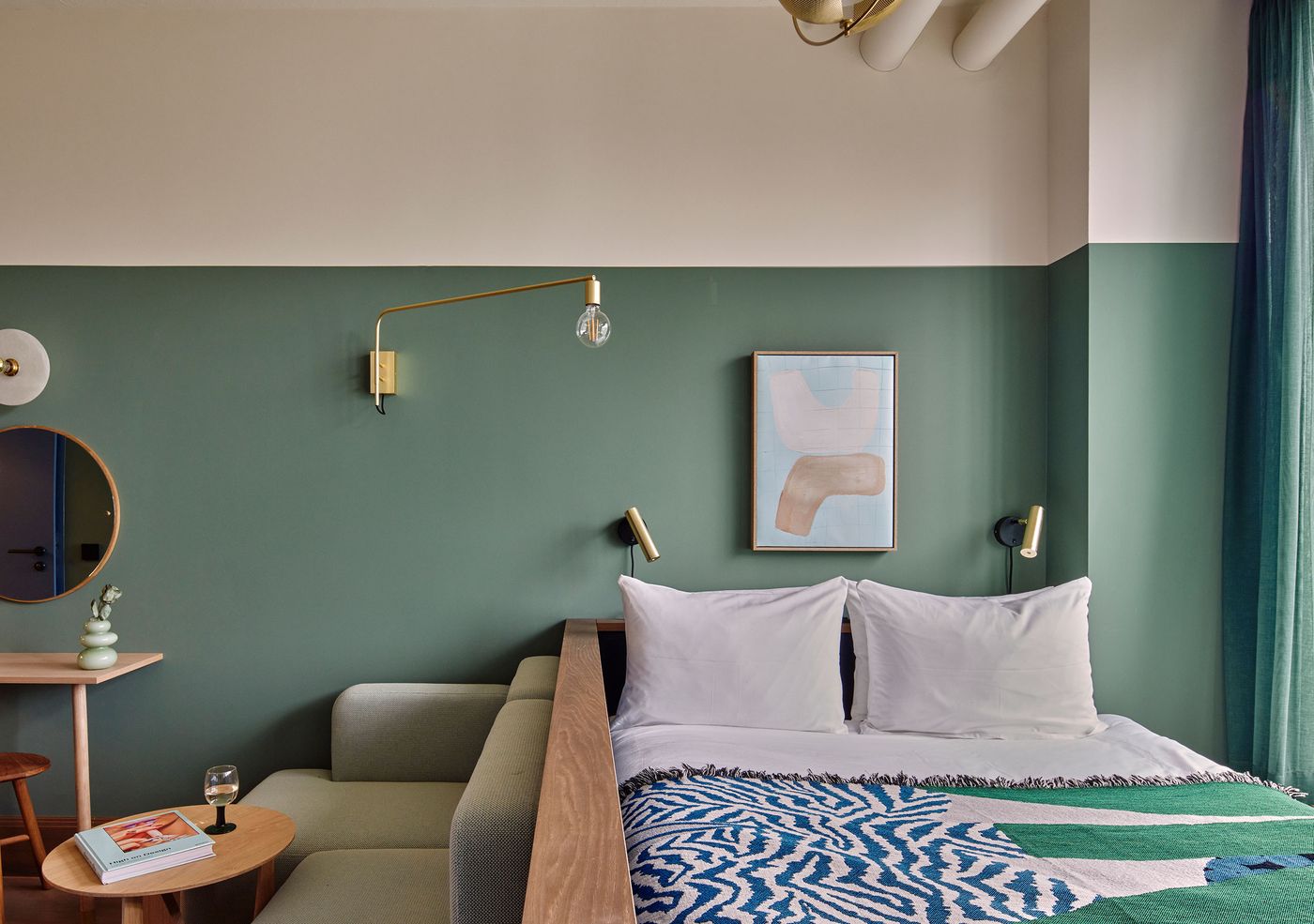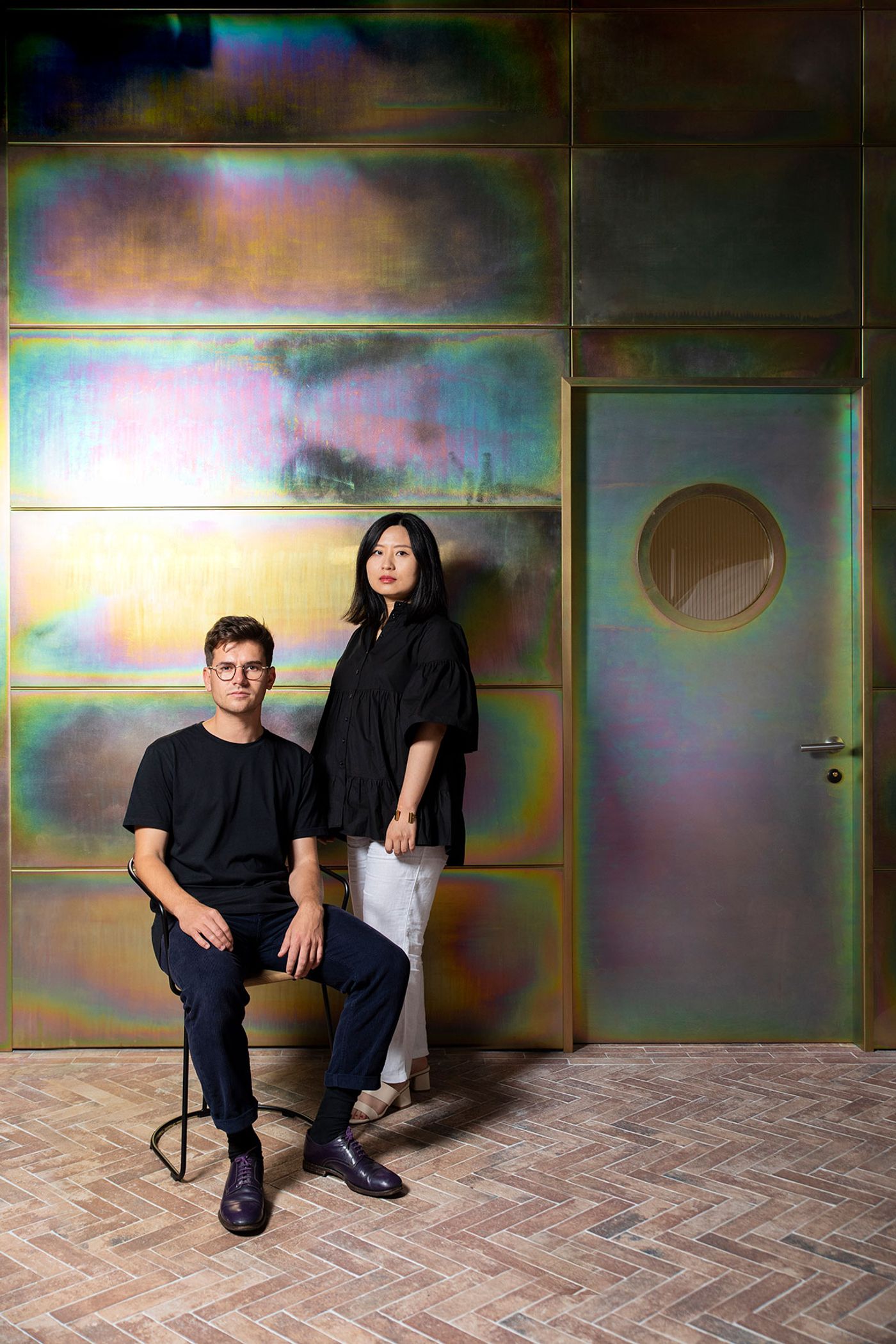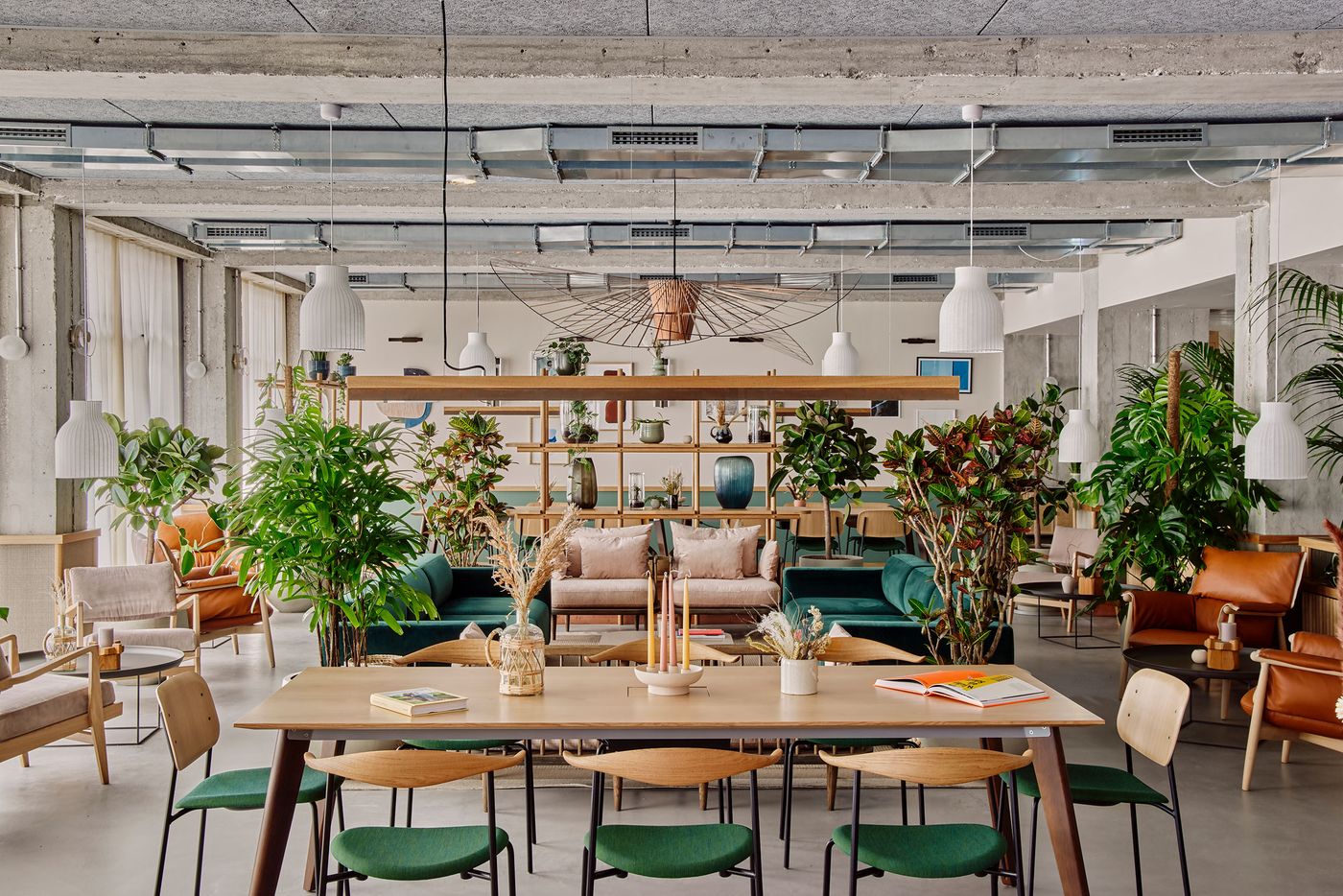
Kandinsky’s Art Theories Guide Holloway Li's Low-Impact Transformation of a Munich Office Building into a Lifestyle Aparthotel
Words by Eric David
Location
Munich, Germany
Kandinsky’s Art Theories Guide Holloway Li's Low-Impact Transformation of a Munich Office Building into a Lifestyle Aparthotel
Words by Eric David
Munich, Germany
Munich, Germany
Location
Taking over a monumental office block in Sendling, a borough in the south-west of Munich, WunderLocke is the latest outpost of lifestyle apartment-hotel brand Locke. Scheduled to fully open in September, the hotel is billed as a vibrant destination for locals, holidaymakers and business people alike, and for good reason: the project was conceived as a microcosm of the city, bringing together 360 studios and suites, five restaurants and bars, meeting and co-working spaces, wellness studios and a fitness centre, all under one roof. Ambitious as this brief is, the project’s true distinction lies in its underlying aspiration of forging a connection with nature, which is all the more noteworthy considering that the hotel is located in an industrial area. Opting for a low impact design approach, London-based design studio Holloway Li have stripped the former Siemens office building down to its raw concrete frame, layering it with natural materials and plenty of plants in the spirit of Vasily Kandinsky’s abstract style. A flexible layout together with minimum fixed elements that limit the need for wasteful future renovations, and a farm-to-table culinary philosophy, including a rooftop farm providing seasonal herbs and vegetables to the hotel’s restaurants, further underline WunderLocke’s focus on circularity and renewal.
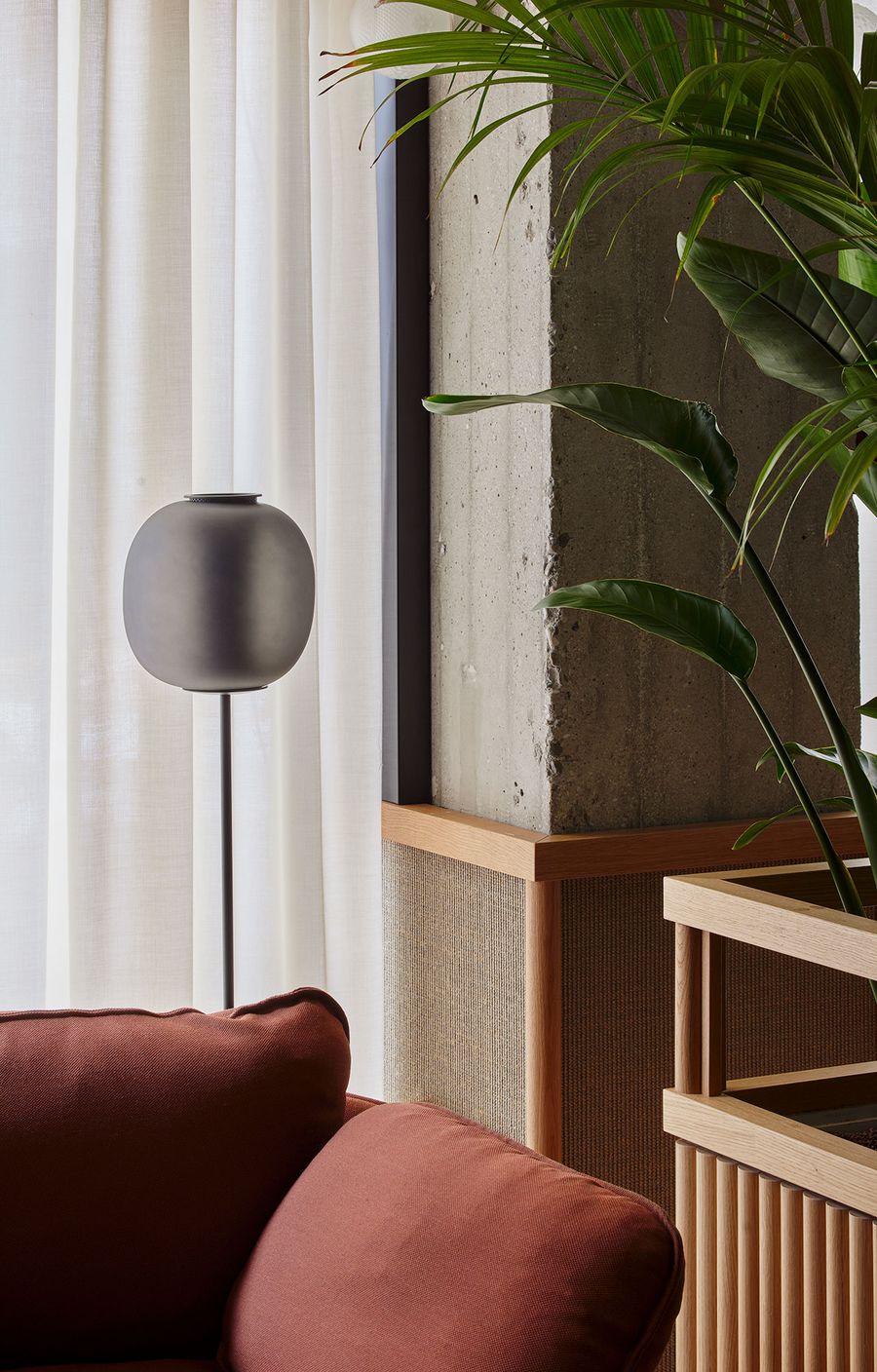
Photography by Edmund Dabney.
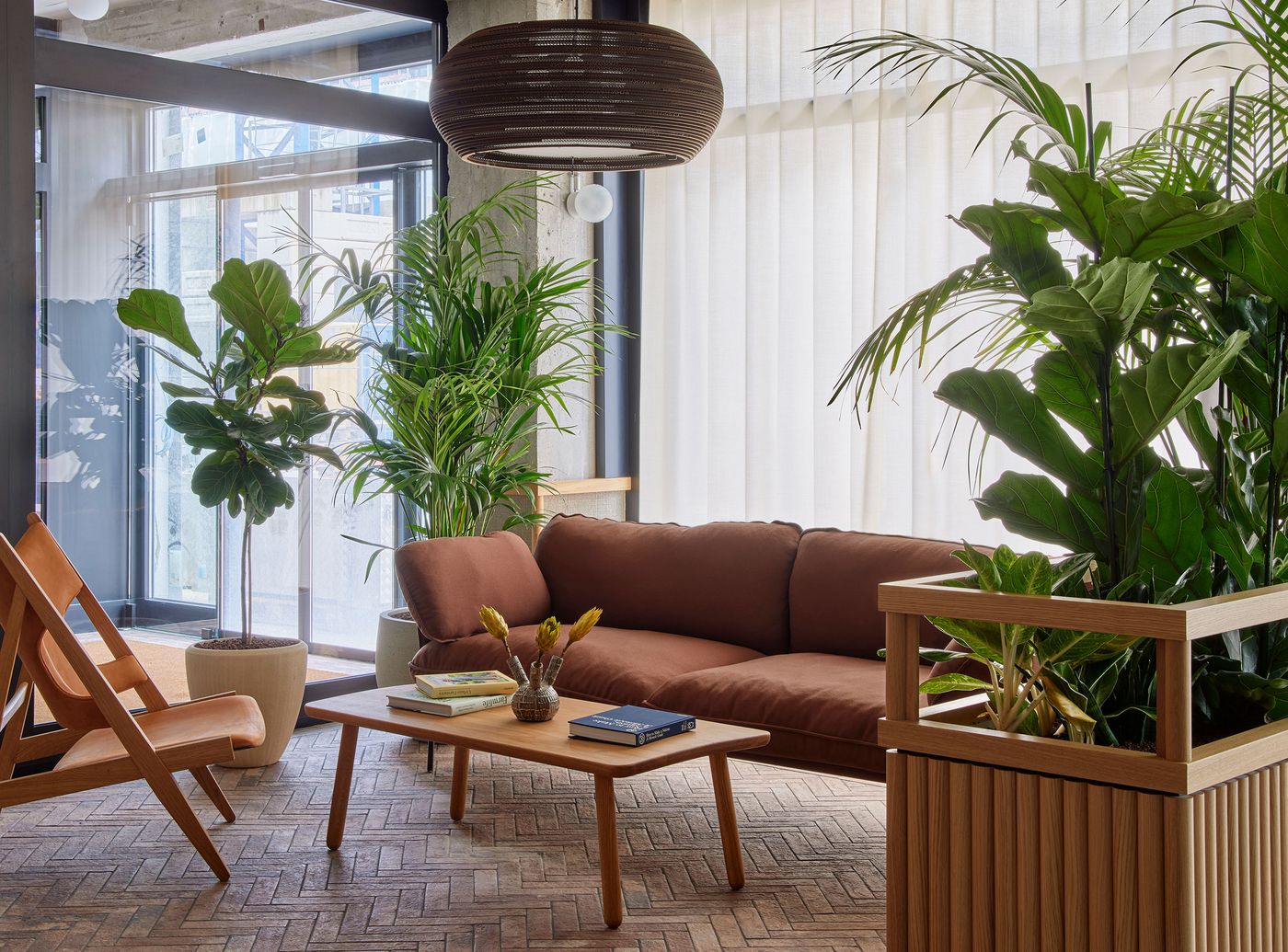
Photography by Edmund Dabney.
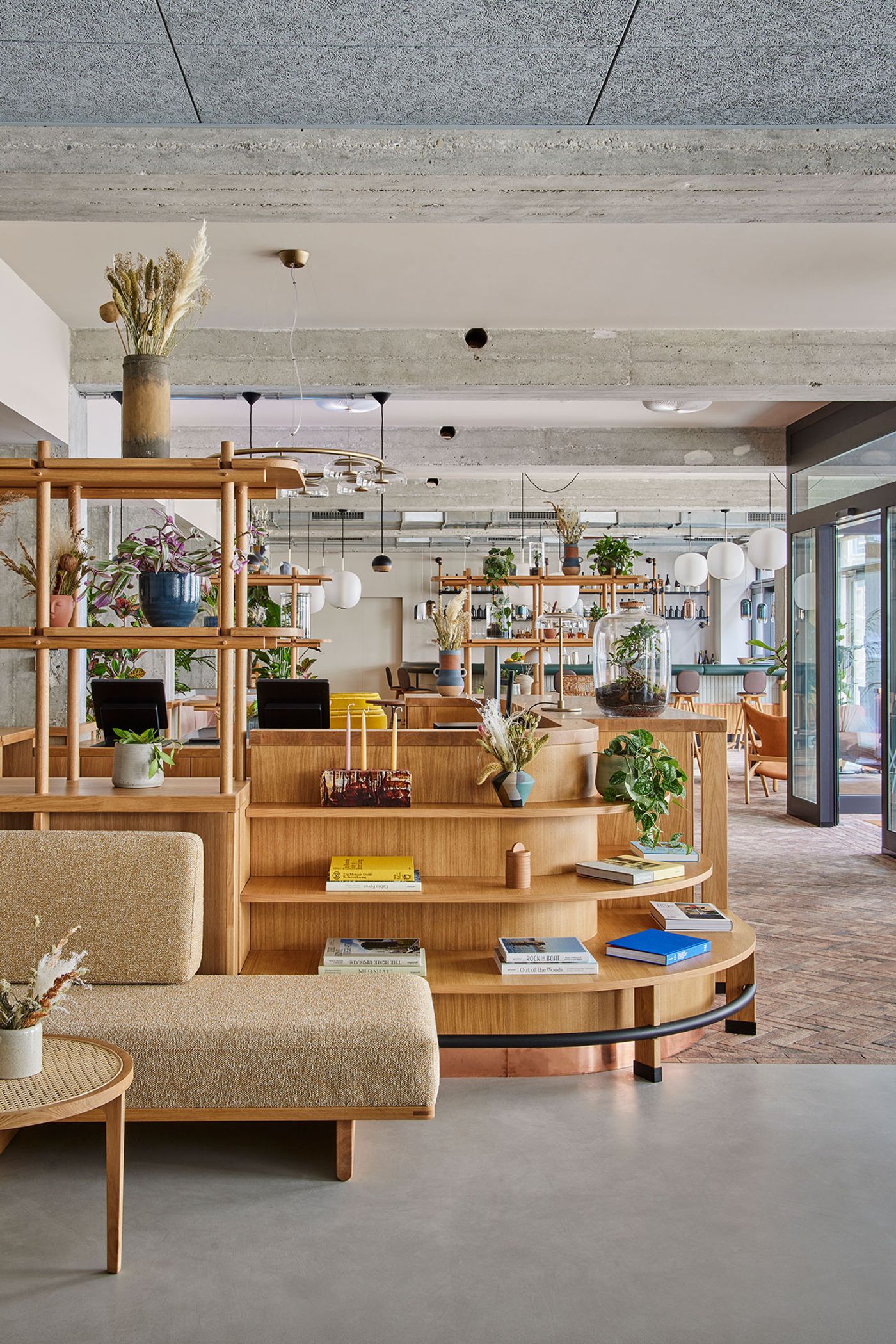
Photography by Edmund Dabney.
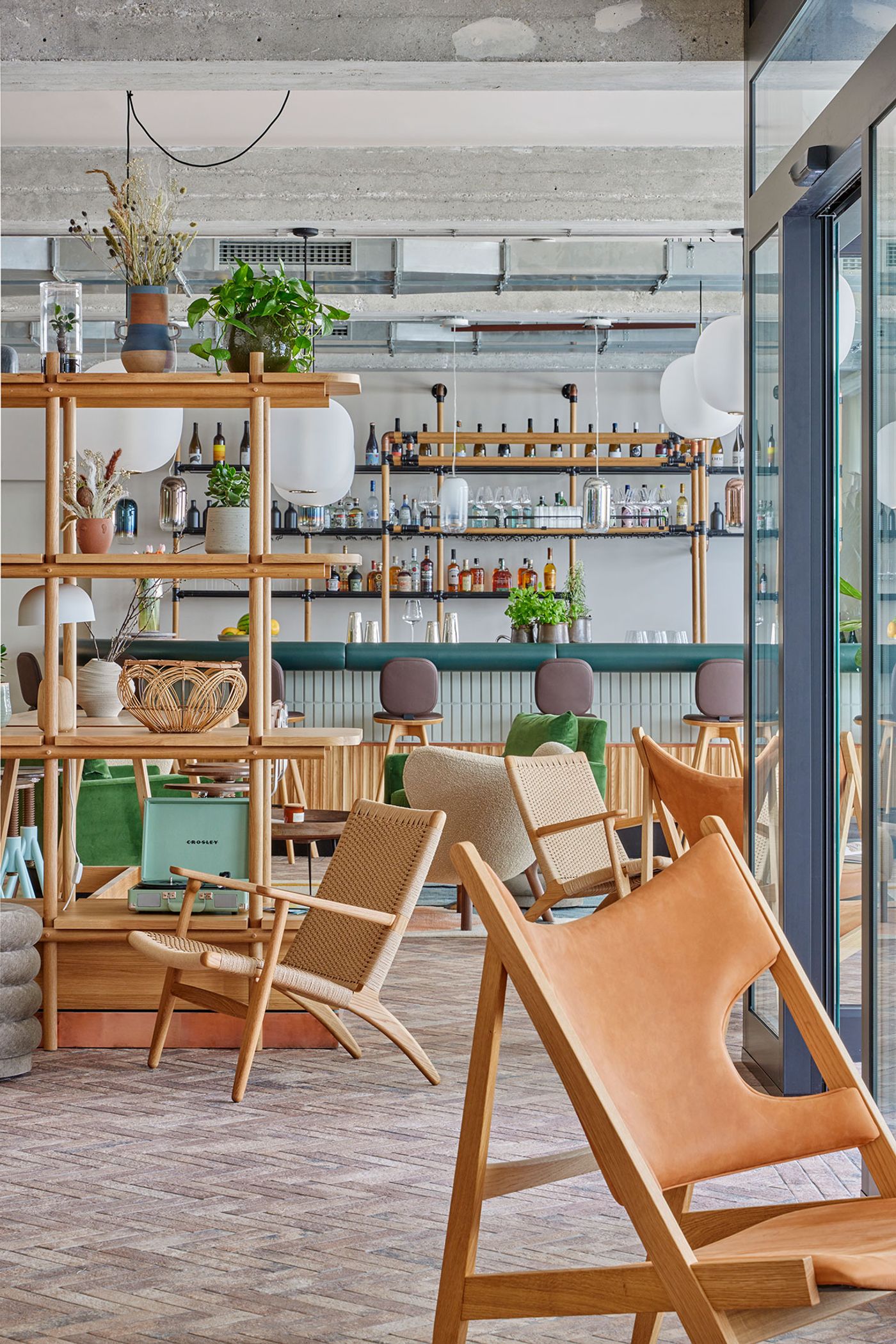
Photography by Edmund Dabney.
It's a testament to Holloway Li’s design acumen that the stripped down, seven-storey concrete behemoth of a building feels neither staid nor oppressive but rather welcoming and vibrant, thanks to a sense of craftsmanship and a visual language that plays on the tension between the structure’s rigid geometry and amorphous masses of colour. The latter was inspired by the theories and style of acclaimed artist (and Munich resident in the early 20th century) Vasily Kandinsky whose work explored how we can develop a closer relationship to nature through abstraction. Just as Kandinsky strived to find the ‘Innerer Klang’, or inner voice, of objects and materials in order to reveal their natural essence, the team removed all of the building’s superfluous elements to reveal its concrete skeleton as an acknowledgment of its industrial DNA around which the offshoots of renewal can be cultivated.
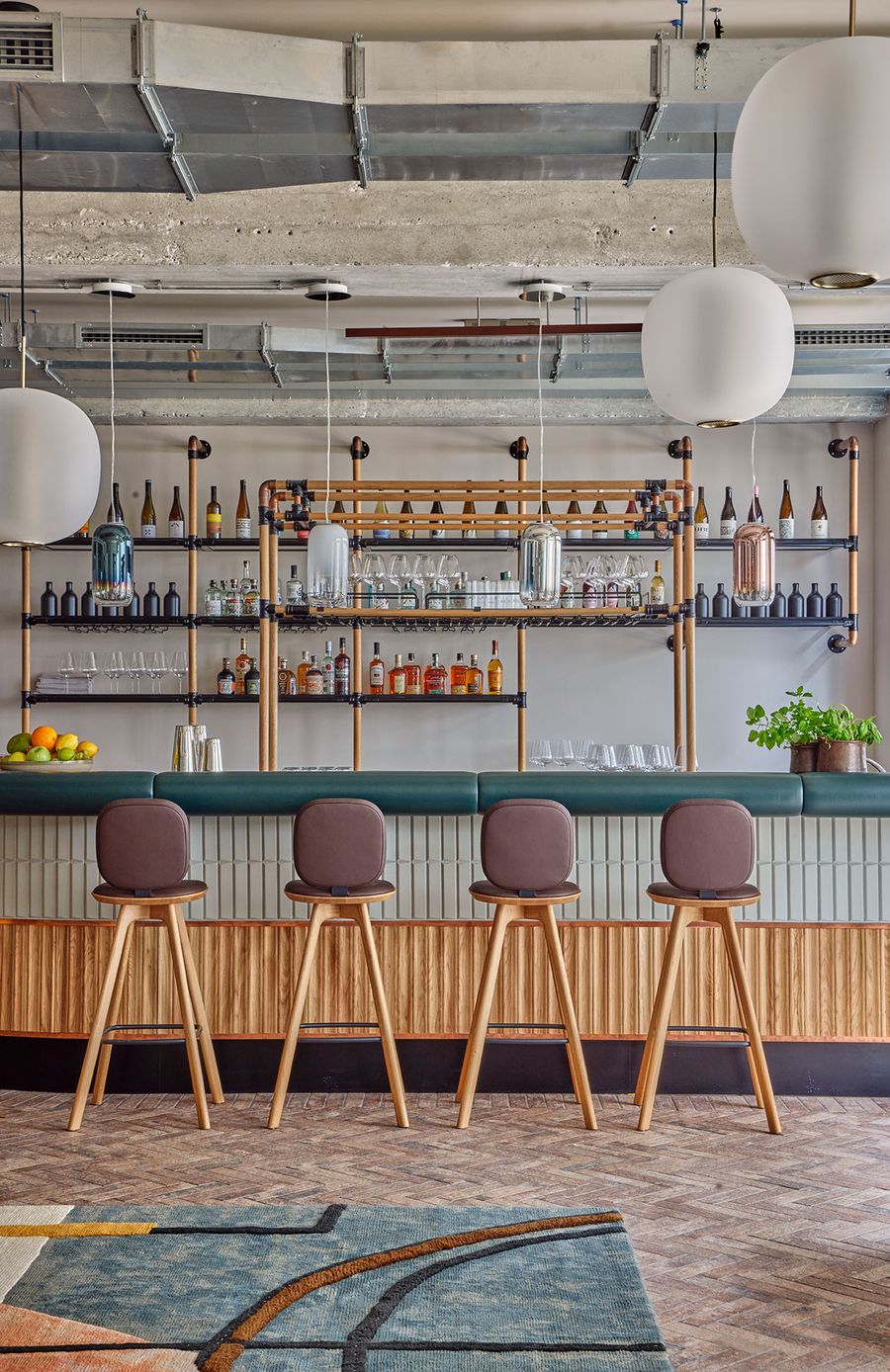
Photography by Edmund Dabney.
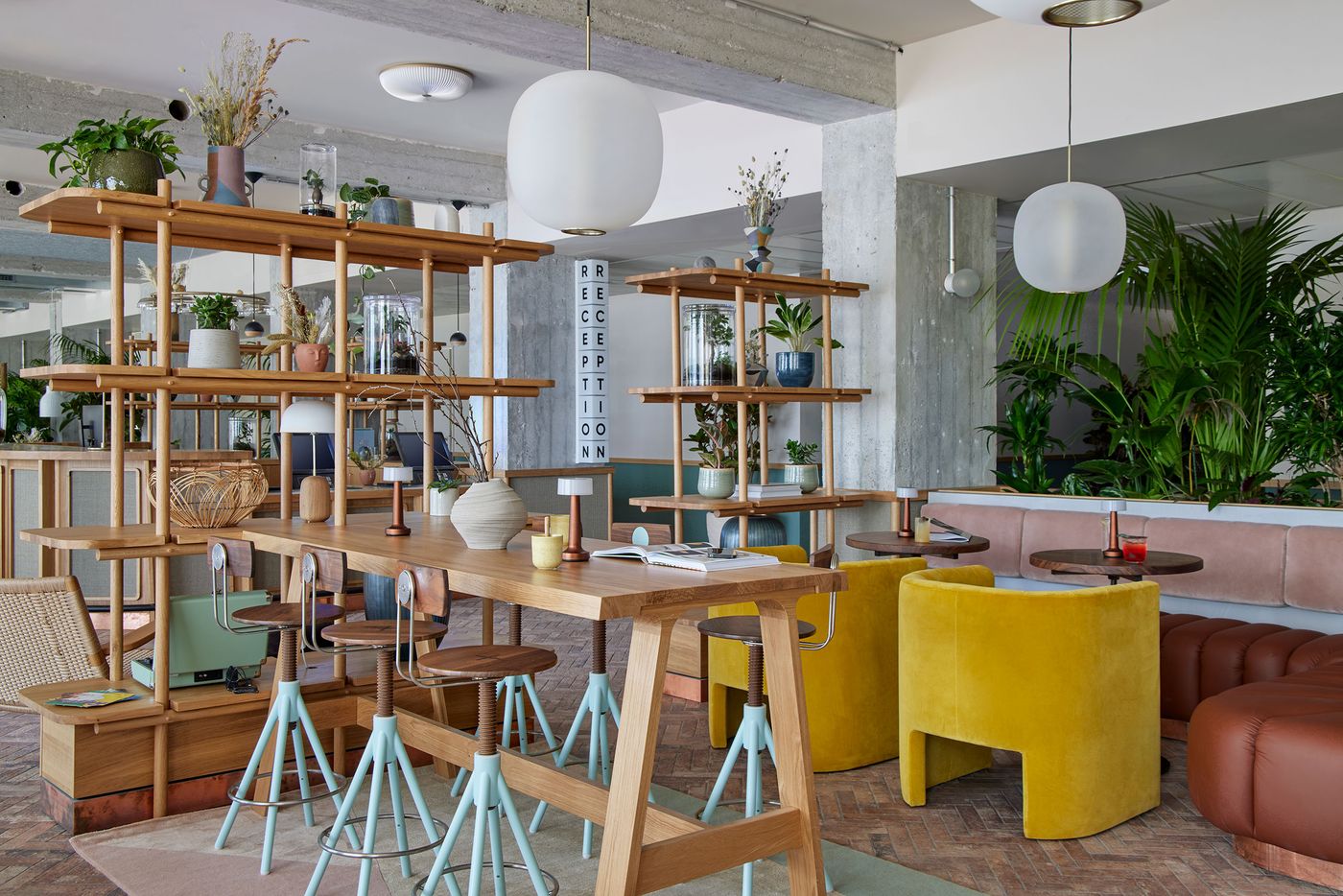
Photography by Edmund Dabney.
Anchored by earthy tones and botanical greens, a limited palette of natural materials such as timber, terrazzo, leather and raffia balances the concrete structure, naturally-textured carpeting brings softness to the spaces, while pops of colour across furniture and upholstery add vibrant accents. Dense vegetation further underlines the overall concept of “urban grit meets leafy tranquillity”, as well as enhances the tension between the fixed concrete elements and the formless boundaries of the various common areas.
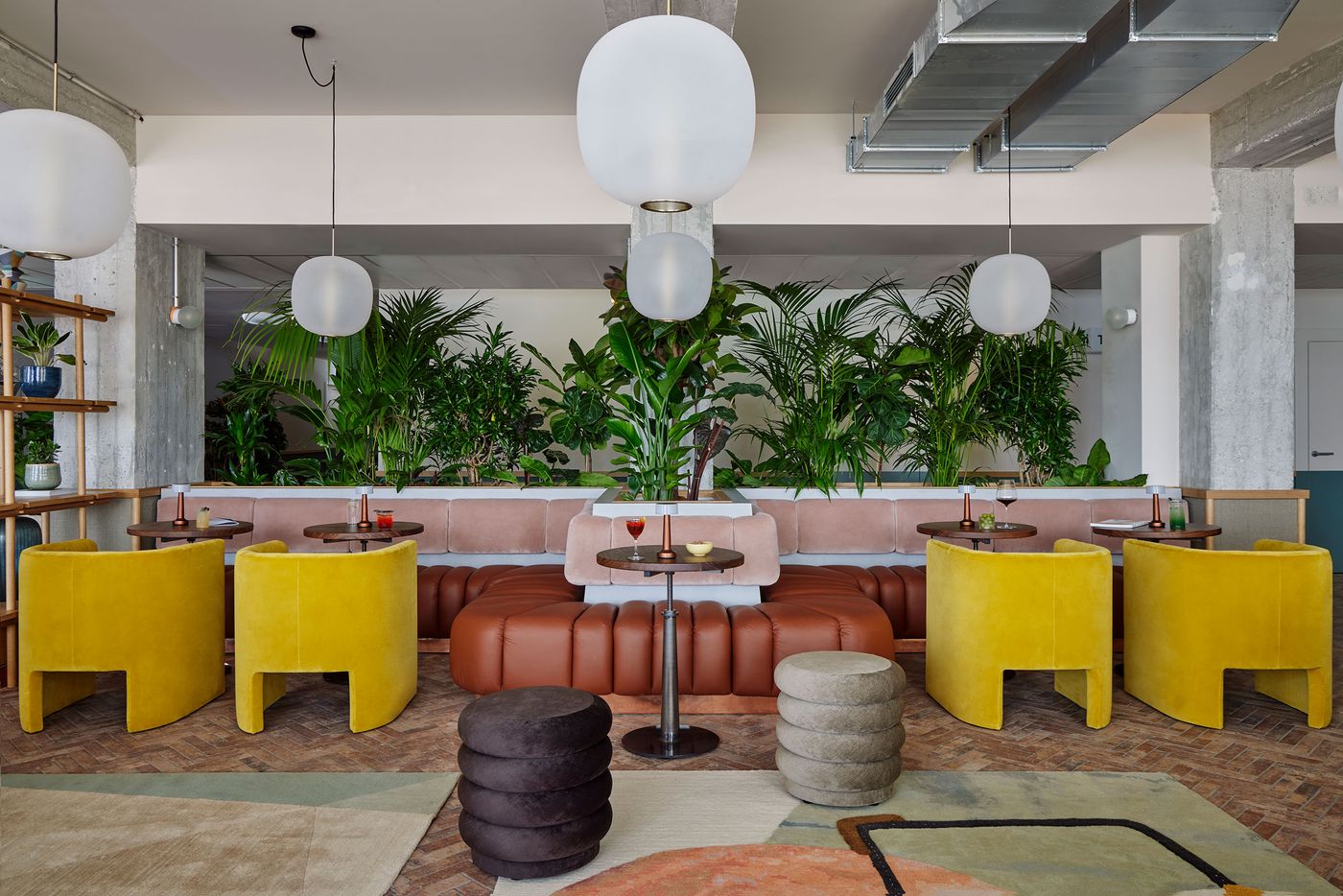
Photography by Edmund Dabney.
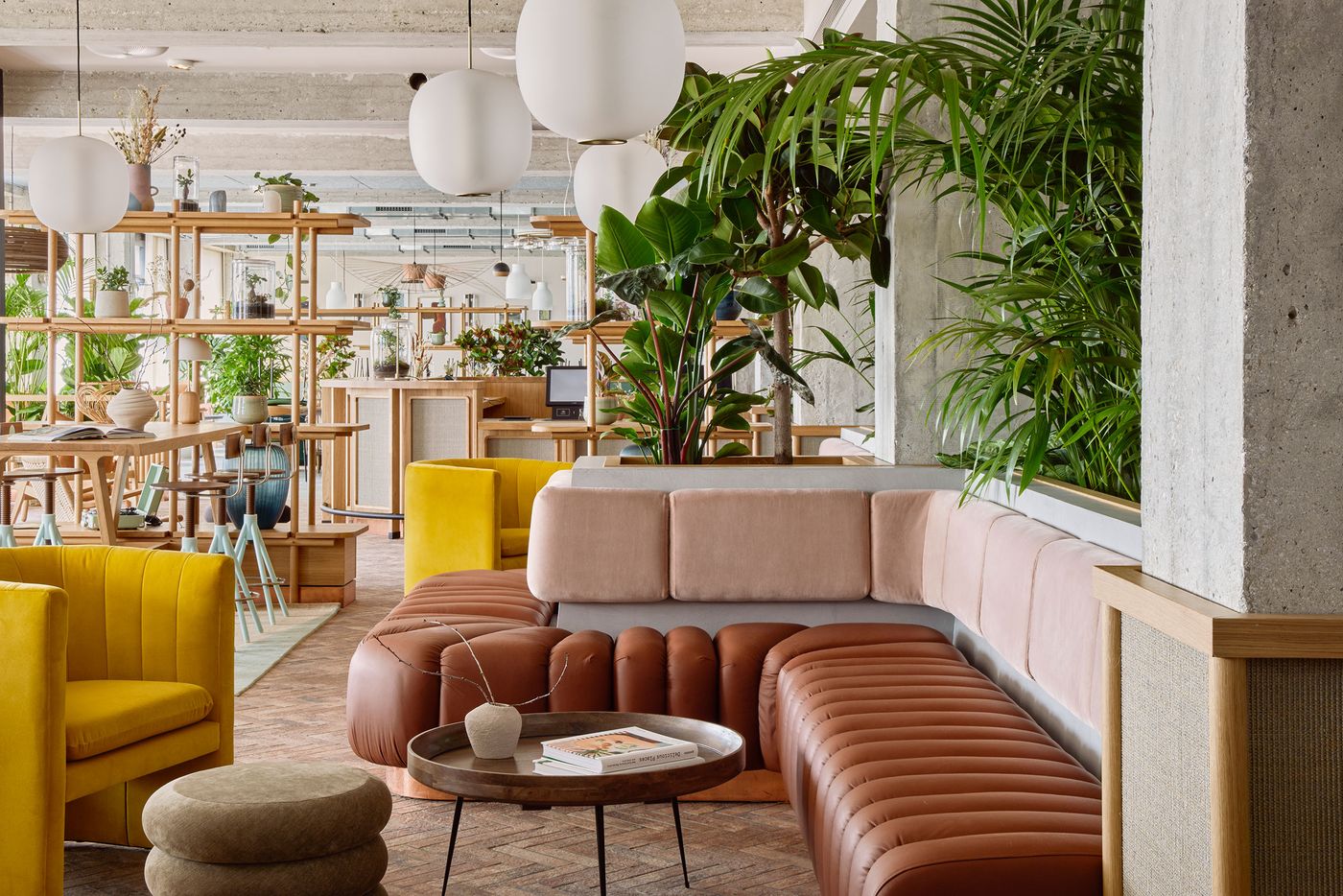
Photography by Edmund Dabney.
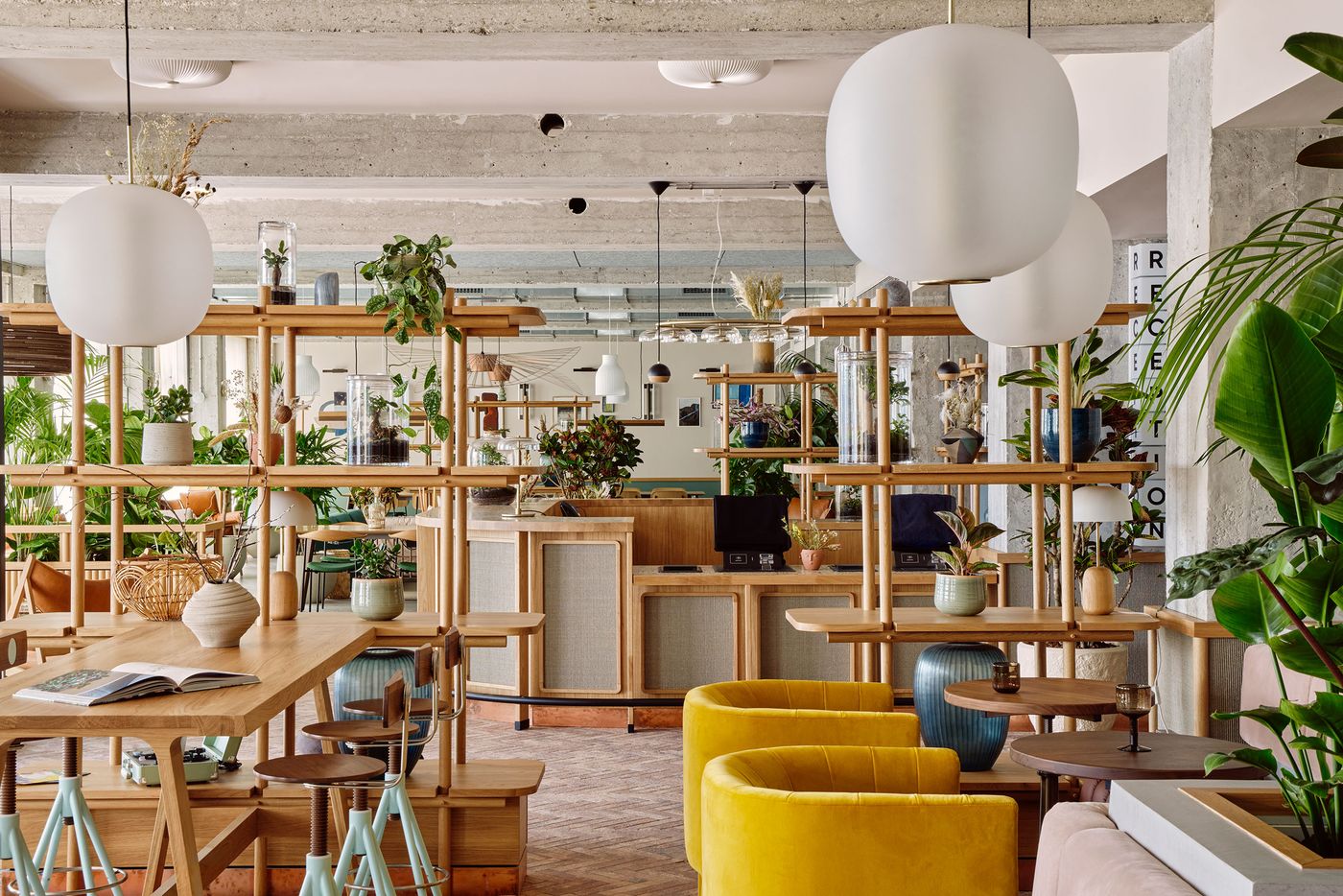
Photography by Edmund Dabney.
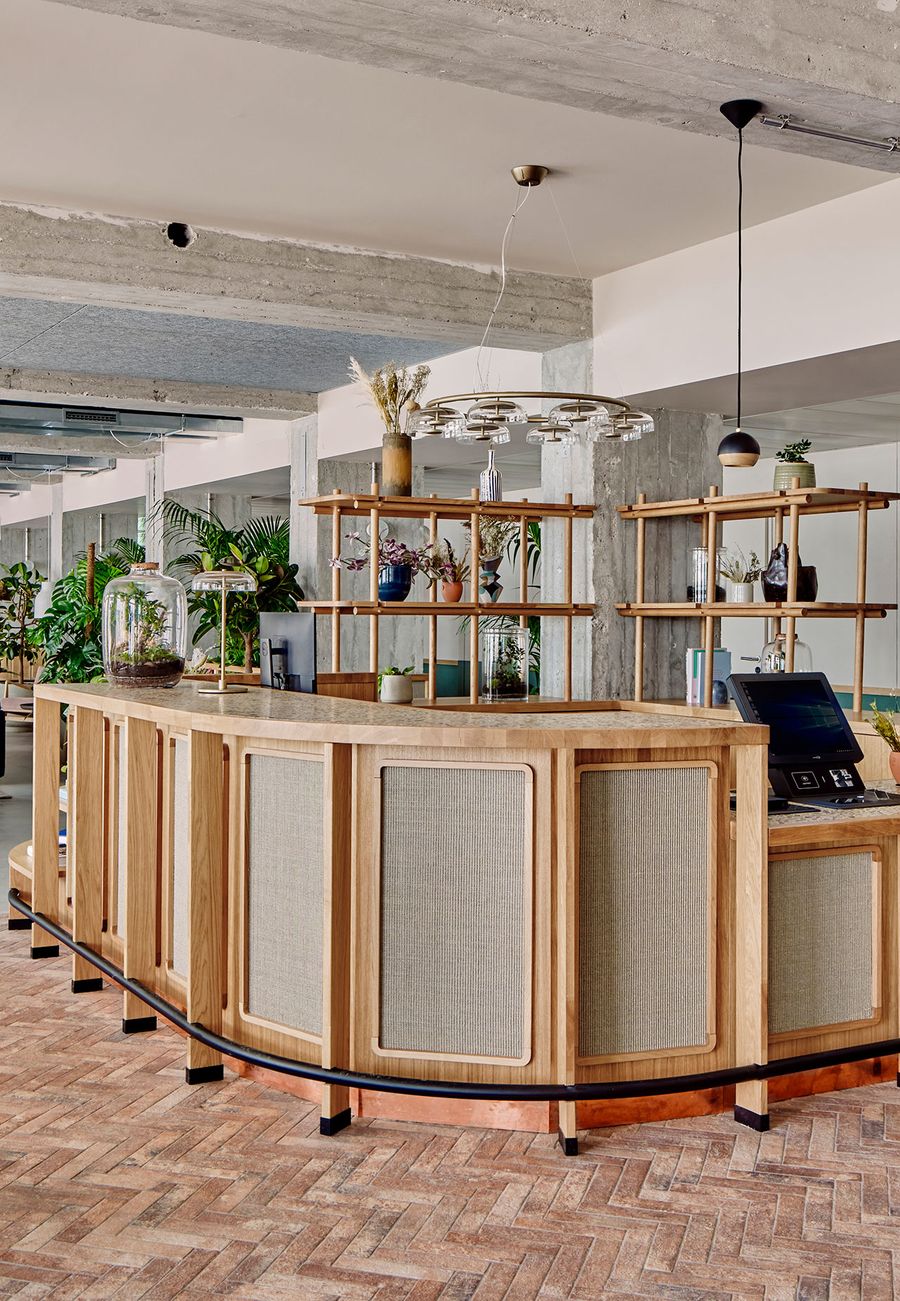
Photography by Edmund Dabney.
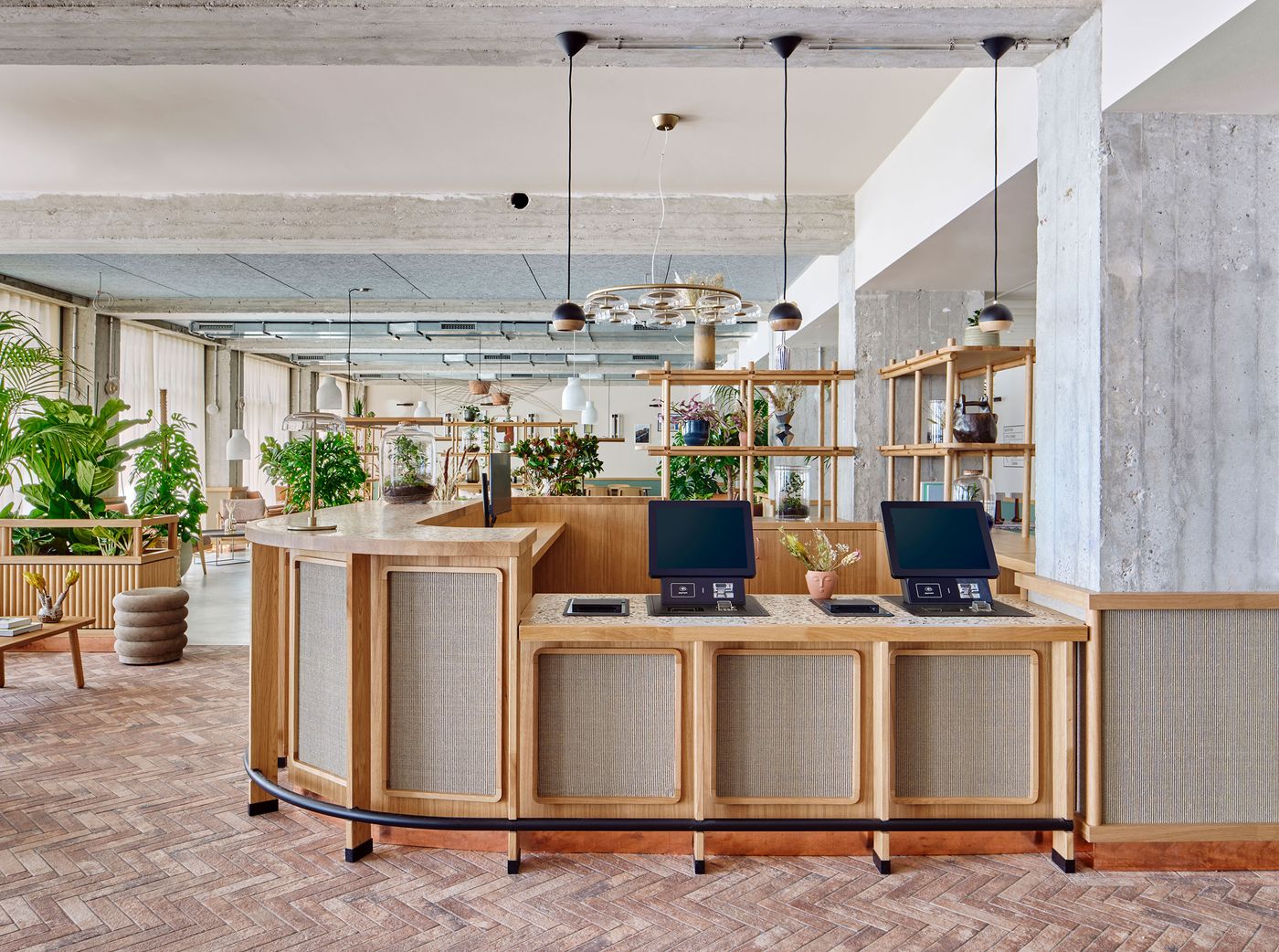
Photography by Edmund Dabney.
Craftsmanship and sustainability are integral parts of the hotel’s interior design, evident in the bespoke furniture that Holloway Li designed for the project, as well as the building’s meticulously restored 1960s terrazzo staircase, which includes new stainless-steel fixings and handrails that inject a contemporary vibe. From the reception desk that doubles as a flexible retail stand and which features a timber terrazzo counter top and sisal carpet inlay details, to the free-standing shelving that subtly zones the open-plan public areas as well as hosts retail pop-ups, to leather and suede upholstered banquettes, timber planters, industrial style stools - the latter part of a series created in partnership with German furniture design studio Co-ordination - every piece is as exquisitely crafted as it’s functional.
Taking advantage of the building’s lengthy footprint, the ground floor public areas flow into one another. The lobby, which is defined by a curved timber reception desk, merges with the lounge on one side and with the bar on the other, the latter leading onto the co-working spaces. Picking up the rounded form of the reception desk, the curvaceous bar counter, which was inspired by 1970s New York dive bars, opens to the outside through a window serving the external pool area.
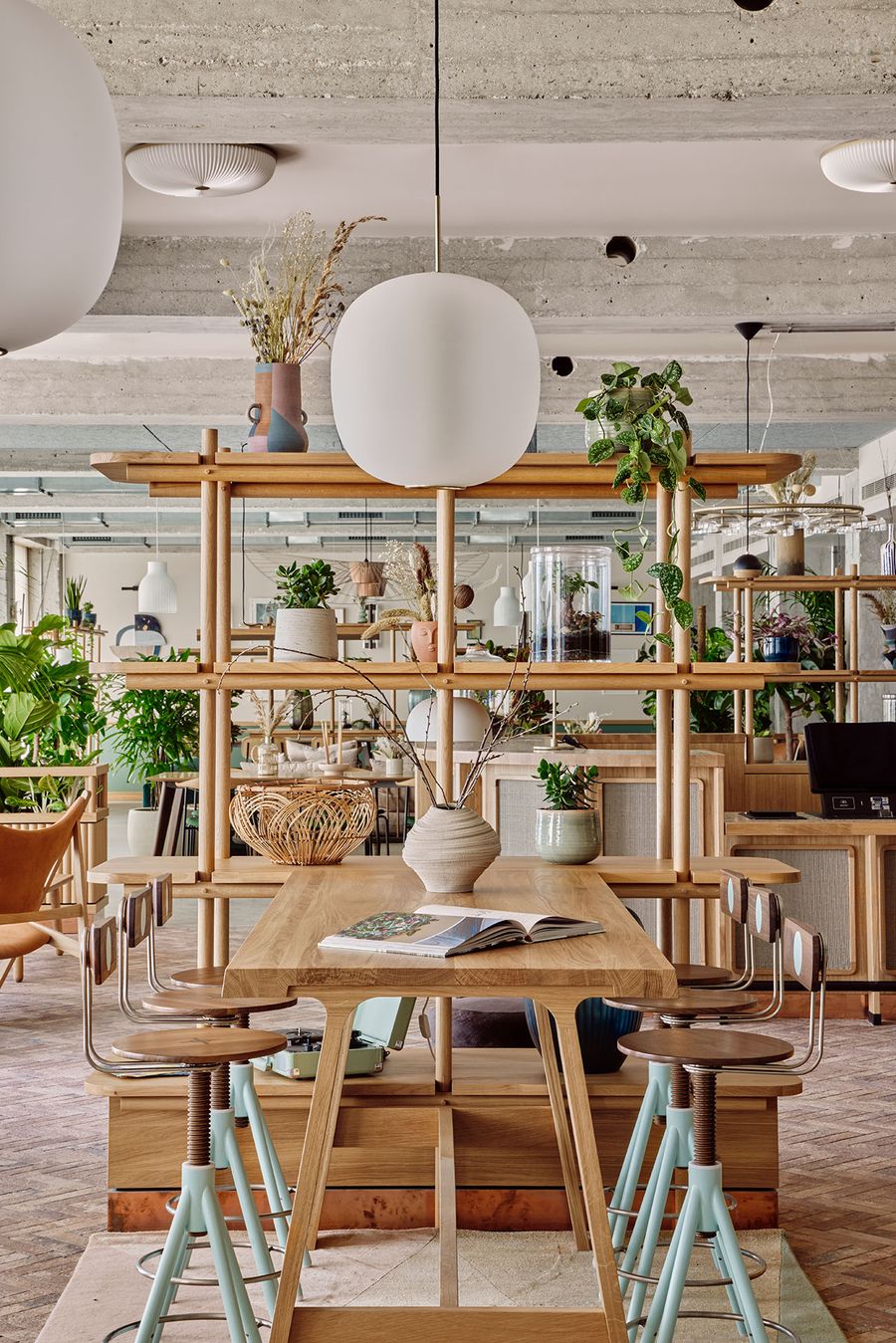
Photography by Edmund Dabney.
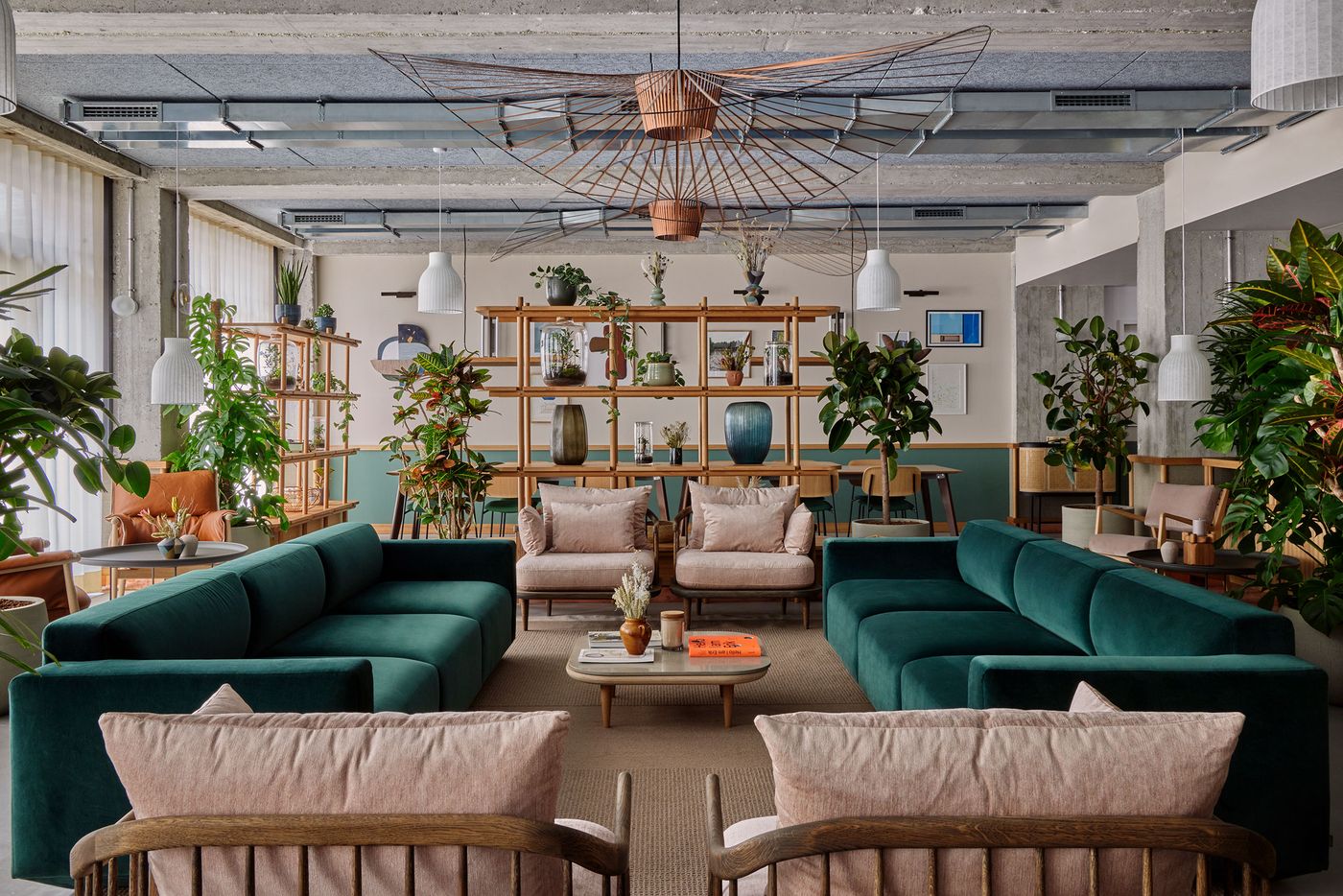
Photography by Edmund Dabney.

Photography by Edmund Dabney.
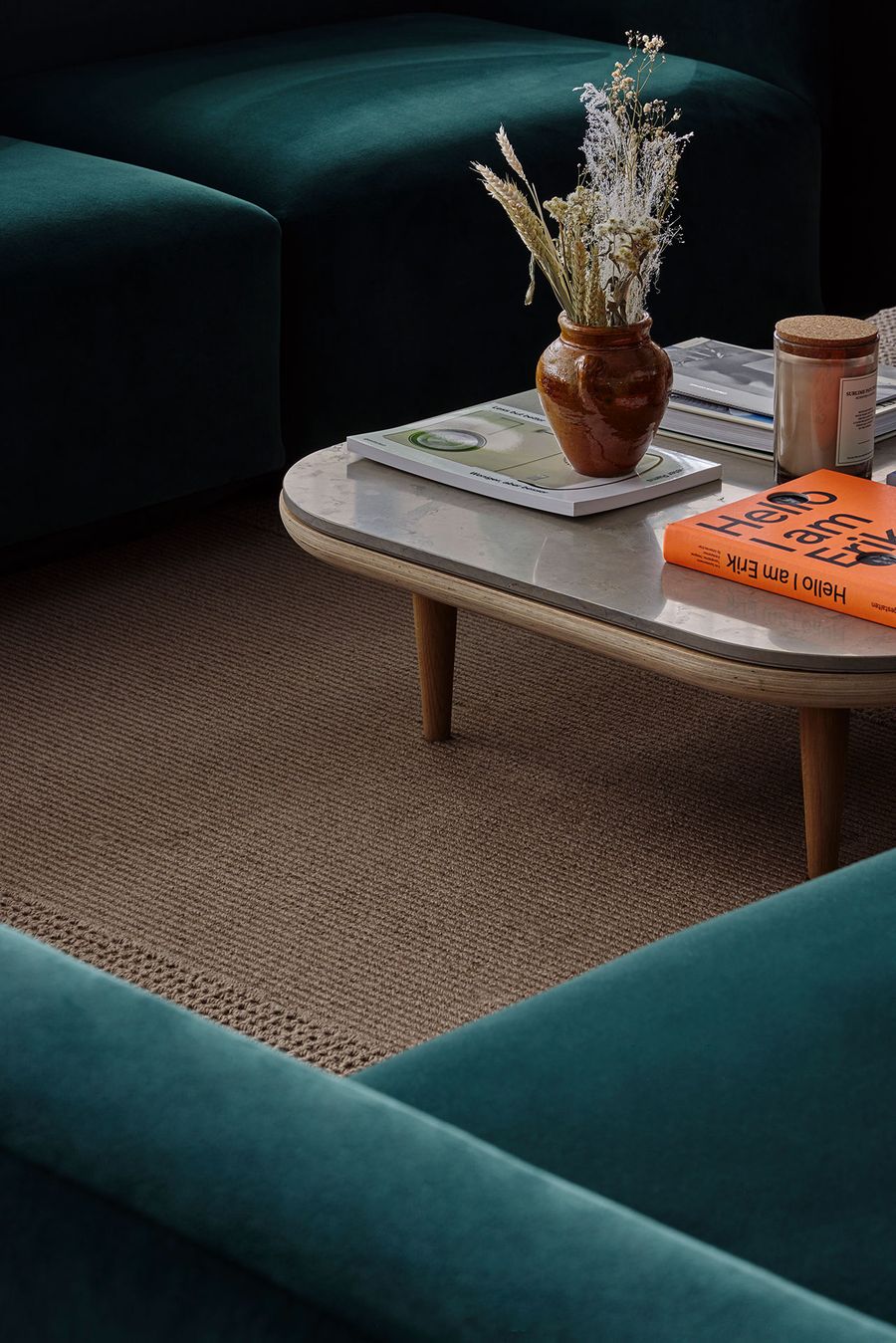
Photography by Edmund Dabney.
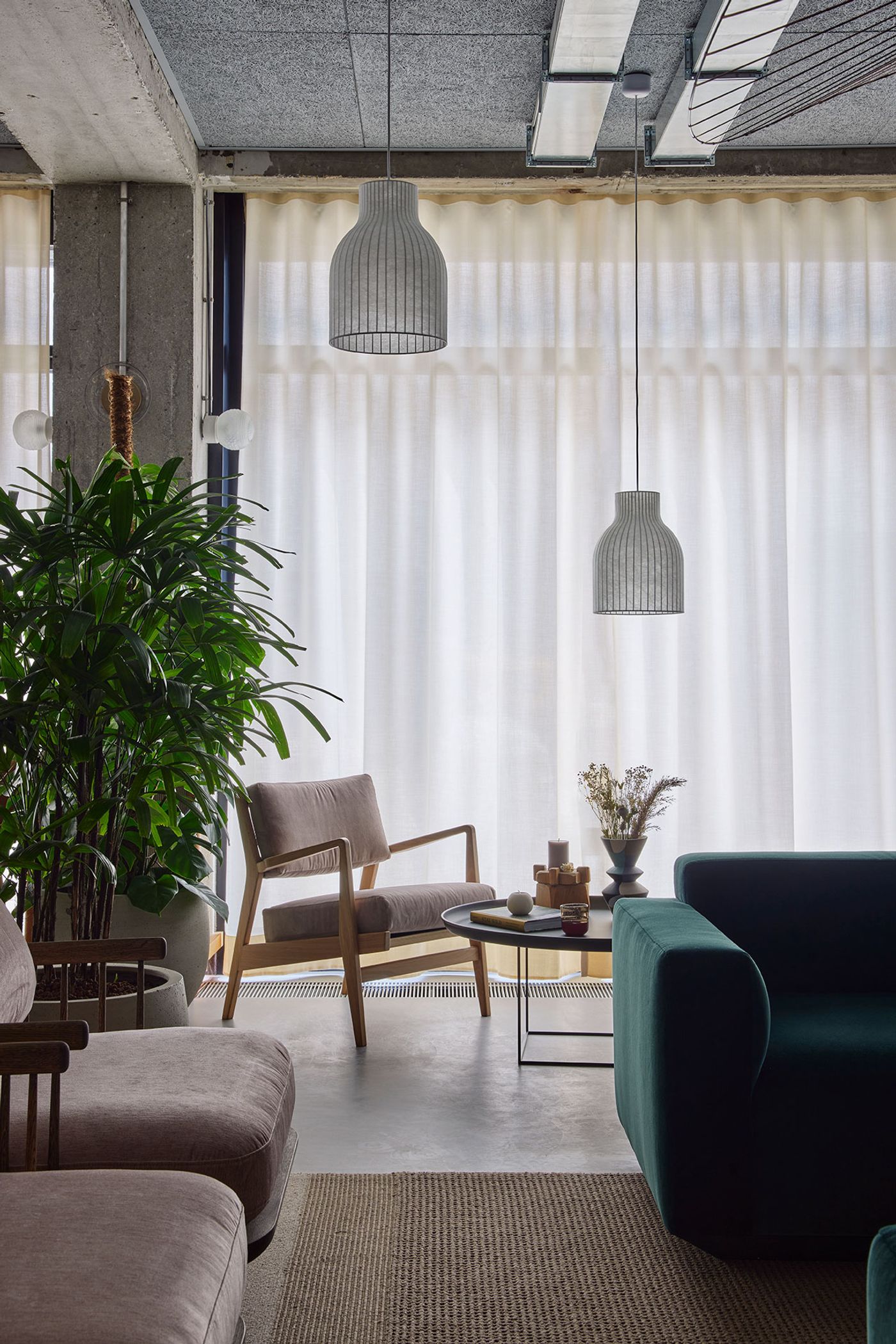
Photography by Edmund Dabney.
The fine balance between industrial sensation and the handcrafted feel is carried on in the 360 accommodations, which range from compact studios to expansive penthouses, with concrete and black metal surfaces softened by light oak elements and a plethora of leafy green plants.. Complementing the natural hues, swathes of green and blues imbue the spaces with a sense of peace and rejuvenation, which the hotel’s guests have plenty of opportunities to partake in through wellness sessions and fitness classes, a communal sauna, Jacuzzi and the outdoor heated pool.
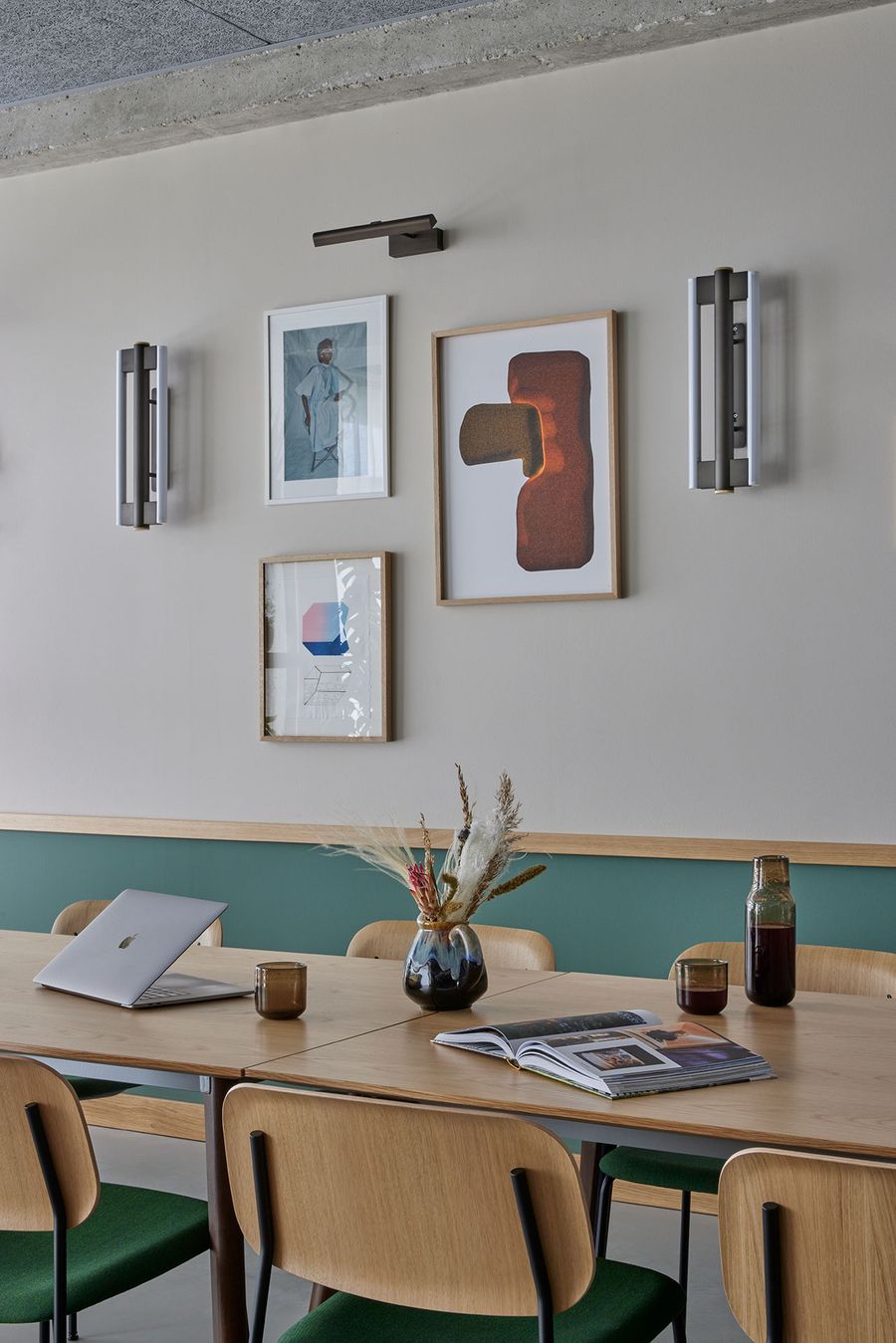
Photography by Edmund Dabney.
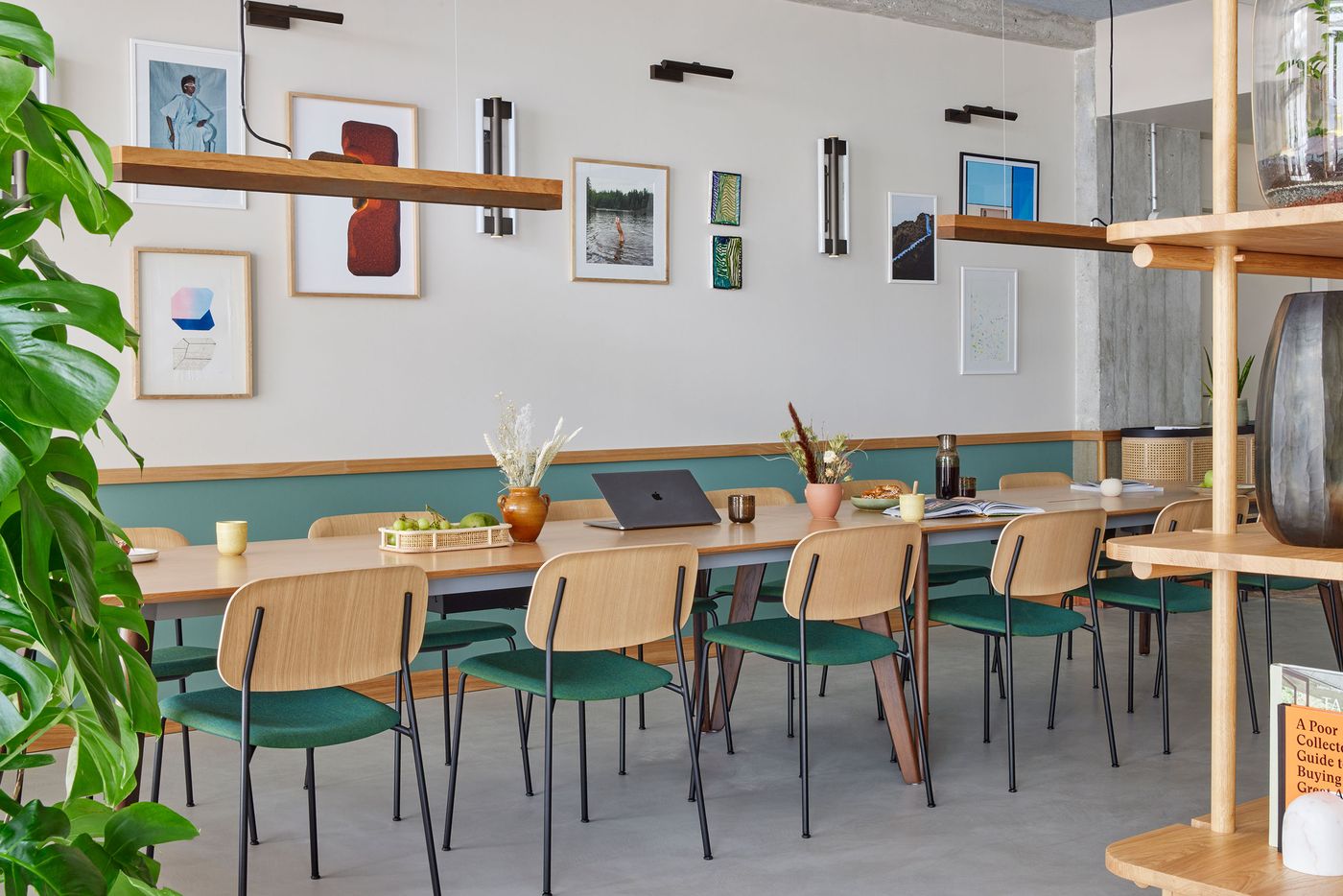
Photography by Edmund Dabney.
Mural Farmhouse, a unique farm-to-table concept by the founders of local Michelin-starred restaurant Mural in collaboration with internationally recognised chef Rico Birndt, completes the hotel’s connection-to-nature proposition with five food and drink destinations: an all-day restaurant, fine dining Chef’s table, coffee shop, wine and cocktail bar, and a rooftop bar with panoramic views of the Bavarian Alps. The kitchen farm supplying the hotel’s restaurants with fresh, seasonal ingredients on the rooftop further points out that for WunderLocke, wellness and hedonism are ultimately two sides of the same coin.
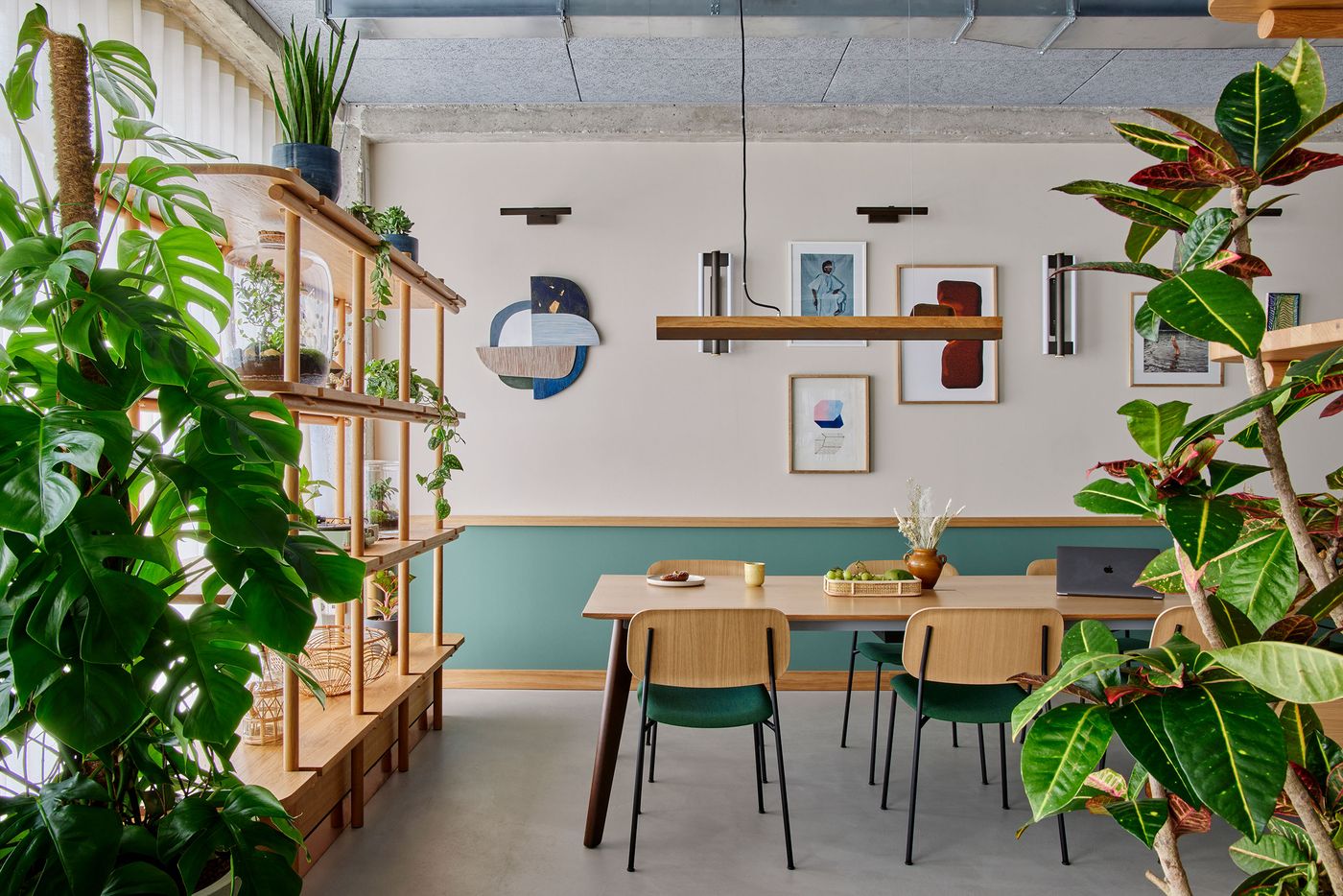
Photography by Edmund Dabney.
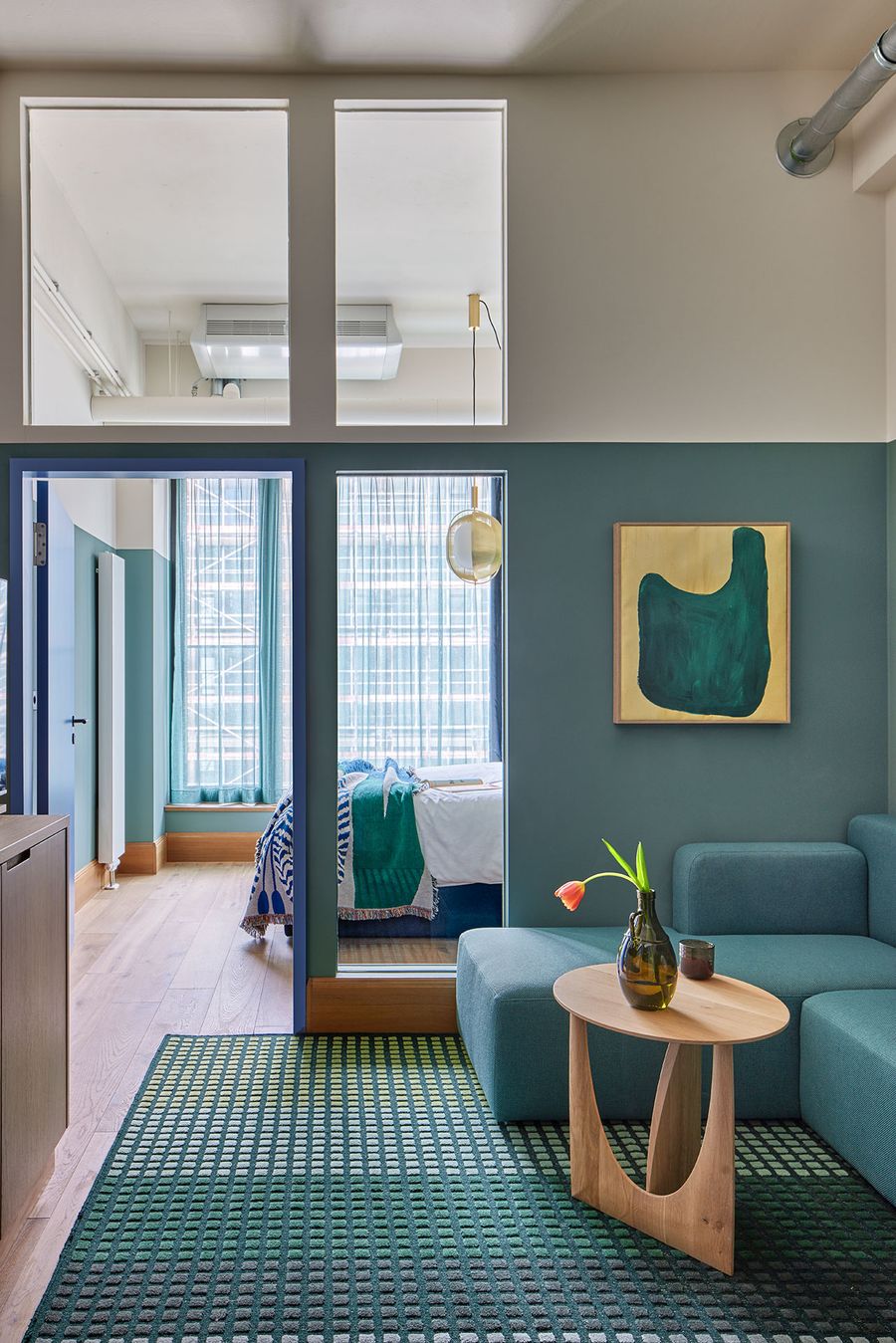
Photography by Edmund Dabney.
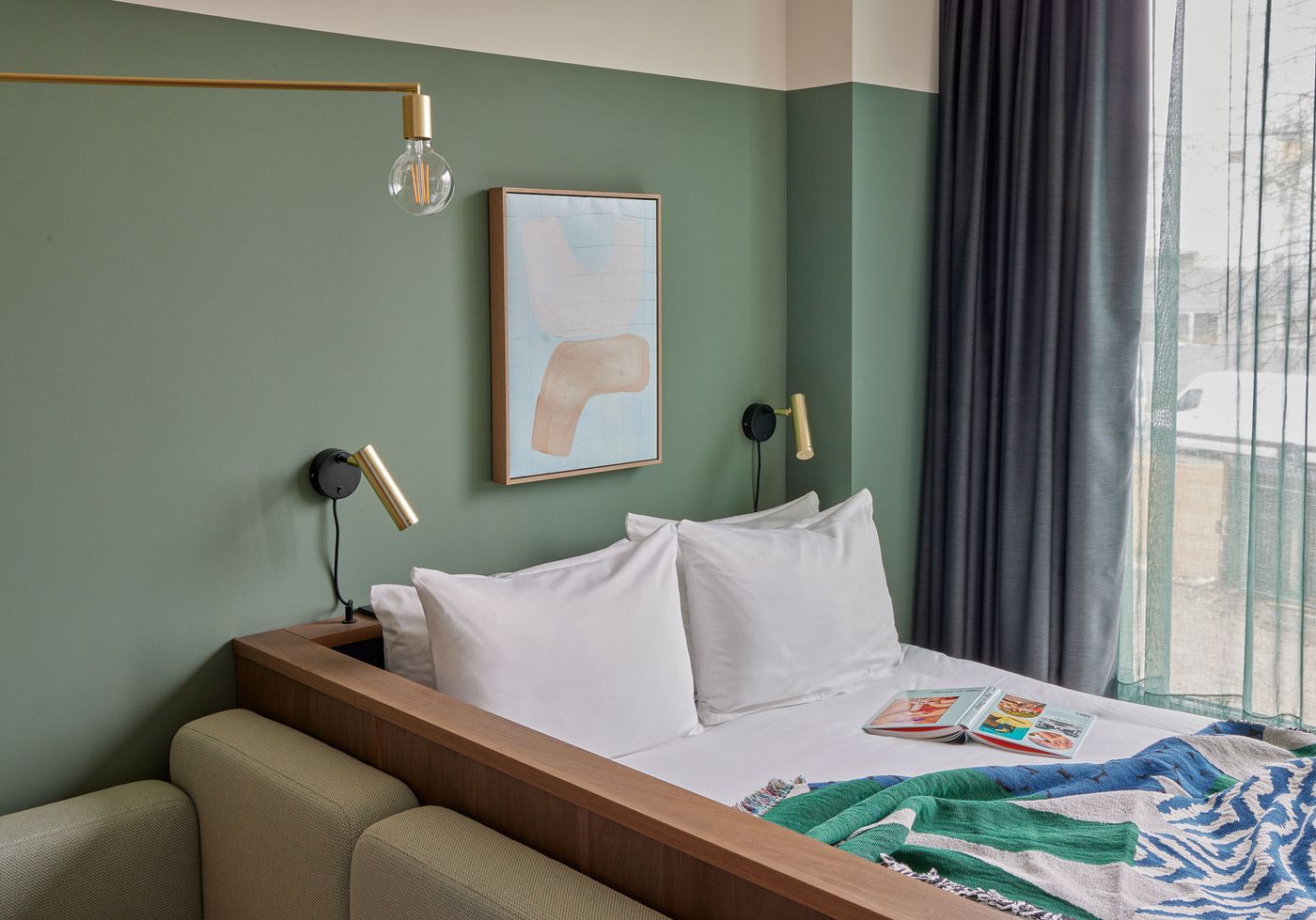
Photography by Edmund Dabney.
